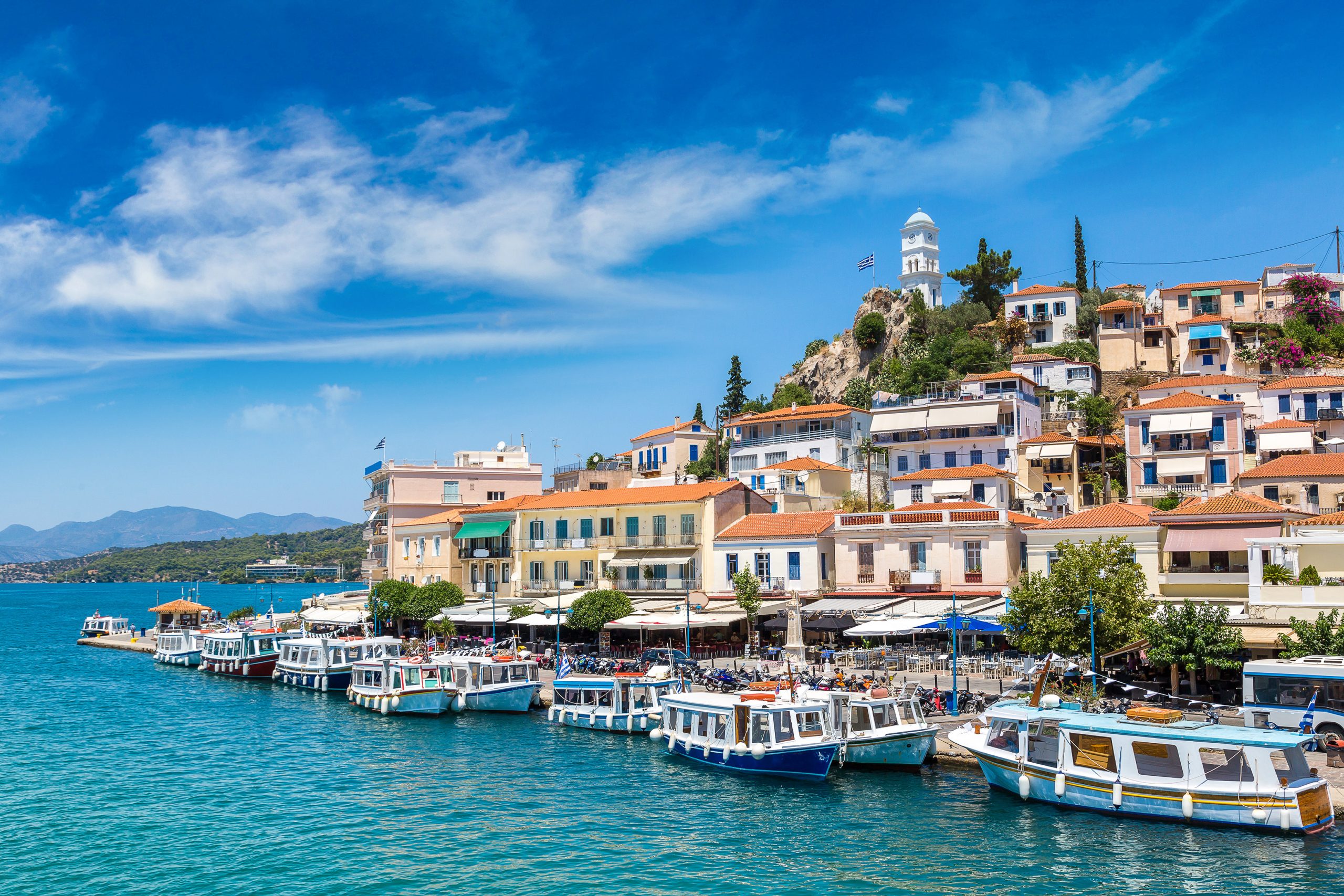Located in the remote corners of the eastern Aegean Sea, a small Greek island is a perfect spot for those seeking tranquillity, shimmering coastlines and incredible cuisine.
The island of Chalki, situated in the Dodecanese archipelago about an hour and a half by ferry from the famous island of Rhodes, is not only an appealing destination for tourists but has also emerged as a focal point for Greece’s ambitious Eco-island initiative, aimed at transforming Greek islands into models of green economy, energy autonomy, digital innovation and ecological mobility.
The island has undergone a remarkable transformation into a model of a green economy, marked by energy self-sufficiency, digital innovations, and sustainable mobility through electric vehicles. This metamorphosis has not only attracted environmentally conscious tourists, reaching 100,000 this year from 20,000 in 2019 but has also significantly improved the lives of its approximately 250 permanent residents.
One of the most notable changes highlighted by the residents is the substantial reduction in electricity bills. Popi Lisgou, a permanent resident and owner of a traditional tourist shop, is a member of the “ChalkiON” Energy Community, consisting of 220 out of 250 islanders. According to her, before the installation of the photovoltaic park, the annual electricity bill for her shop was €2,000, which has now plummeted to €40.
ChalkiON, covering 80% of the island’s energy needs, is a key player in the transition. The mayor, Evangelos Frangakis, notes that almost 80% of the residents are already members, and the fees for electricity provision are nearly negligible. A portion of the bills is funded by solar energy. Additionally, waste management has seen a dedicated initiative on the island, fostering environmental awareness among children.
Astypalea
Similar changes are unfolding on the island of Astypalea, also in the Dodecanese, although its conversion into a Gr-eco island is still in progress. Following the footsteps of the Cycladic “green” Tinos, this transformation is expected to extend across the country, with Poros being the next eco-friendly “target”.
Astypalaia, as the first “Gr-eco island,” has introduced electric mobility, enhancing public transportation with on-demand electric vans. Residents and visitors alike are embracing these changes, leading to a reduced reliance on personal vehicles and alleviating parking concerns, especially during the bustling summer months.
The Mayor of Astypalea, Mr. Nikos Komineas, reports that due to subsidies, the island has acquired around 120 electric vehicles, including both private and rental cars, with no conventional vehicles in sight. Notably, these vehicles are charged using “green” electricity generated by a photovoltaic system installed by the municipality.
Mayor Komineas emphasizes the effort to establish an Energy Community in Astypalea, following Chalki’s example, with the goal of reducing residents’ electricity bills.
Poros
The island of Poros, situated in the Saronic Gulf to the west of Peloponnese, is also set to become the next GR-eco Island, as a recent agreement between the Ministry of Energy and the Abu Dhabi-based company Masdar outlines plans for green projects on the island.
Agios Efstratios
Simultaneously, the transformation of Agios Efstratios (Ai Stratis) – a small Greek island in the northern Aegean Sea about 30 kilometers southwest of Lemnos – into a green island is nearing completion, with a renewable energy system developed by the Center for Renewable Energy Sources for the Municipality of Agios Efstratios.
The system, featuring a 0.9 MW wind turbine, a 0.23 MW photovoltaic station, an energy storage unit, and a 5-kilometer heating network covering 90 buildings, is projected to cover 85% of the island’s electricity needs by early 2024.
30 renewable islands for 2030
Several Greek islands have been recognized by the European Commission’s “30 renewable islands for 2030” initiative, including Tilos, Astypalea, Lesbos, Ikaria, Kastellorizo, and Psara. These islands aim to achieve complete energy independence by the end of the decade and have secured European support within the next three years to facilitate their transition to clean energy.



